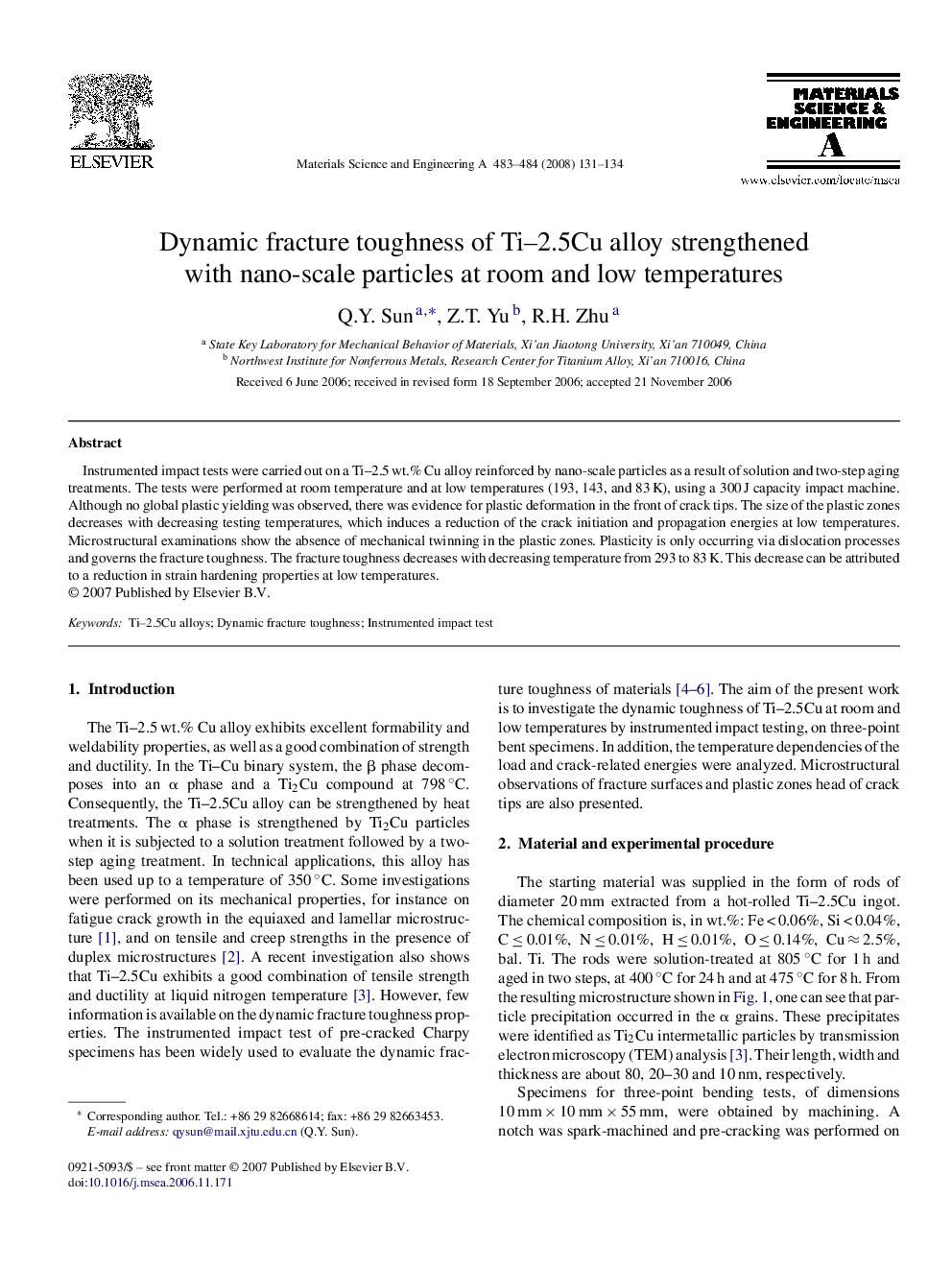| Article ID | Journal | Published Year | Pages | File Type |
|---|---|---|---|---|
| 1582261 | Materials Science and Engineering: A | 2008 | 4 Pages |
Instrumented impact tests were carried out on a Ti–2.5 wt.% Cu alloy reinforced by nano-scale particles as a result of solution and two-step aging treatments. The tests were performed at room temperature and at low temperatures (193, 143, and 83 K), using a 300 J capacity impact machine. Although no global plastic yielding was observed, there was evidence for plastic deformation in the front of crack tips. The size of the plastic zones decreases with decreasing testing temperatures, which induces a reduction of the crack initiation and propagation energies at low temperatures. Microstructural examinations show the absence of mechanical twinning in the plastic zones. Plasticity is only occurring via dislocation processes and governs the fracture toughness. The fracture toughness decreases with decreasing temperature from 293 to 83 K. This decrease can be attributed to a reduction in strain hardening properties at low temperatures.
